ASBMB names 2024 fellows
The American Society for Biochemistry and Molecular Biology today announced that 17 members have been named 2024 fellows of the scientific society.
Designation as a fellow recognizes outstanding commitment to the ASBMB through participation in the society as well as accomplishments in research, education, mentorship, diversity and inclusion, advocacy and service to the scientific community.
Edward Eisenstein, an associate professor of bioengineering at the University of Maryland and ASBMB Membership Committee chair, and Judith Bond, an adjunct professor of biochemistry and biophysics at the University of North Carolina at Chapel Hill and chair of the ASBMB Fellows Program Subcommittee, wrote in a joint statement: “The 17 ASBMB fellows in the 2024 class have shown immense commitment to ASBMB and represent an outstanding group of scientists that push the boundaries of scientific research, mentorship, education and advocacy. It is an honor to have these individuals represent ASBMB, and we look forward to their continued contributions as role models and mentors to current and future members of the biochemistry and molecular biology community.”
This is the fourth year the ASBMB has named fellows. The society will recognize the 2024 class at its annual meeting, Discover BMB, in San Antonio in March.
Learn more about the 2024 fellows below.
Toni M. Antalis
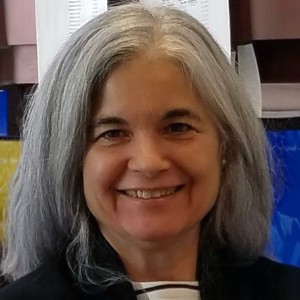
Toni M. Antalis is a professor of physiology at the University of Maryland School of Medicine, where she is also the associate director for training and education for the Greenebaum Cancer Center and the director of the graduate program in molecular medicine. Her lab’s research is focused on signaling mechanisms involved in vascular disease and cancer.
Antalis was the ASBMB president from 2020 to 2022 and has previously served as treasurer, chair of the Publications Committee and a member of the Finance Committee. In addition, she is a past member of the Journal of Biological Chemistry editorial board. At UMB, she is the co-director of the T32 Training Program in Cancer Biology, supported by the National Cancer Institute, and a co-principal investigator of the Post-Baccalaureate Research Education Program supported by the National Institute of General Medical Sciences.
Dudley Strickland, a professor of surgery and physiology at the UMB School of Medicine, nominated Antalis and wrote: “Dr. Antalis has a strong record of exemplary service to the ASBMB, research excellence, mentorship of the next generation of diverse scientists and service to the national scientific community.”
David A. Bernlohr
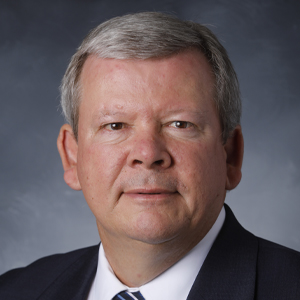
David A. Bernlohr is a professor and chair of systems biology of human metabolism at the University of Minnesota. His lab studies the biology of adipose tissue and the metabolic relationships with obesity, metabolic disease and cancer. Specifically, they are interested in cytoplasmic fatty acid binding proteins and their roles in mediating fatty acid metabolism in adipocytes and macrophages. This work has expanded to include analysis of senescence in adipose tissue aging and the role of lipids as bioregulators of the senescence program.
Bernlohr is a member of the Journal of Lipid Research editorial board and a past member of the Journal of Biological Chemistry editorial board, and he served as cochair for the ASBMB’s 2019 annual meeting.
Douglas Mashek, a professor of biochemistry, molecular biology and biophysics at UM, who nominated Bernlohr wrote: “In addition to his exceptional research accomplishments, Dr. Bernlohr has been a pillar of leadership in the ASBMB community and the University of Minnesota during his unprecedented 27-year tenure as department head of the biochemistry, molecular biology and biophysics department.” James Ntambi, a professor of biochemistry and nutritional sciences at the University of Wisconsin, also nominated Bernlohr and described him as “triple threat — exceptional research scholarship, outstanding professional leadership via mentoring and career development and commitment to the educational mission devoted to the next generation of biochemists.”
Joan W. Conaway
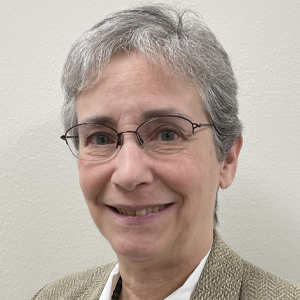
Joan W. Conaway is a professor of molecular biology and the vice provost and dean of basic research at the University of Texas Southwestern Medical Center. Before joining UT Southwestern, Conaway and her husband Ron Conaway co-led a research lab at the Stowers Institute for Medical Research, where their group studied molecular mechanisms by which transcription factors and regulatory protein complexes control transcription.
Conaway is the ASBMB president-elect. She is a past Council member and treasurer. She also served as chair for the Meetings Committee, Nominating Committee and Finance Committee. In addition, has also served on the editorial board of the Journal of Biological Chemistry. Conaway is a former Howard Hughes Medical Institute associate investigator and a member of the National Academy of Sciences and the American Academy of Arts and Sciences. The Conaways jointly received the ASBMB–Amgen award in 1997.
Barbara Gordon, former ASBMB executive director, nominated Conaway and wrote: “I feel strongly that Joan Conaway is exactly the type of member the committee had in mind when the fellows program was established. She has given her time, enthusiasm and expertise to the Society freely and generously. This has served the Biochemistry and Molecular Biology community and the ASBMB well.”
Kathleen Cornely
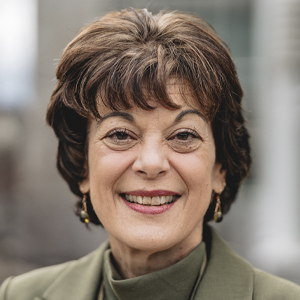
Kathleen Cornely is a professor of biochemistry at Providence College. Her research focuses on the genetic diversity and evolution of bacteriophages, including mycobacteriophages.
Cornely led her department’s efforts in seeking ASBMB accreditation for the biochemistry program. She is also chair of the ASBMB Undergraduate Poster Competition Committee and directs Providence’s ASBMB Student Chapter. She has served on the ASBMB Education and Professional Development Committee.
Marilee Benore, a professor of biology and biochemistry at the University of Michigan-Dearborn and a 2023 ASBMB fellow, who nominated Cornely wrote: “It's not possible to fully share how wonderful she is, how hard she works, and how passionately she shares her knowledge and expertise. At meetings she goes out of her way to find the person who might be sitting alone to make sure they are welcome and engaged.”
Martha S. Cyert
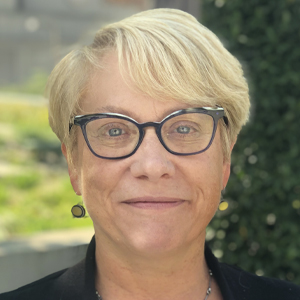
Martha S. Cyert is a professor and chair of biology at Stanford University. Her lab uses systems biology techniques to study the calcium-dependent phosphatase calcineurin. Immunosuppressive drugs such as cyclosporine A inhibit calcineurin through a mechanism defined by Cyert's research.
Cyert was a co-organizer of the 2022 ASBMB annual meeting and is a member of the ASBMB Meetings Committee. She served on the Public Affairs Advisory Committee from 2015 to 2021. She has been awarded fellowships from the American Cancer Society, the Life Sciences Research Foundation and the Lucille P. Markey Charitable Trust. In addition, Stanford named her a Terman Fellow, a Gabilan Fellow and the Thomas W. and Susan B. Ford University Fellow in Undergraduate Education.
Alexandra Newton, a professor of pharmacology at UC San Diego, who nominated Cyert wrote: “Dr. Cyert is a passionate biochemist who has served ASBMB and who has made seminal contributions in phosphatase signaling. She is also an exemplary teacher and mentor and role model. She is an outstanding citizen to the biochemistry/phosphatase community, as evidenced by her leadership roles in ASBMB.” Matthew Gentry, who was also named a 2024 ASBMB Fellow, also nominated Cyert and wrote: “Her service to the society as well as to the broader biochemistry and signaling communities as well as her fundamental discoveries has had and will continue to have high impact.”
Nicholas Davidson
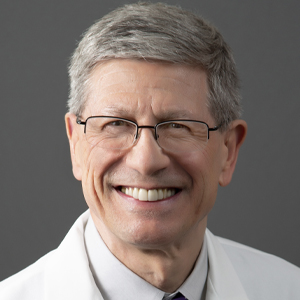
Nicholas O. Davidson leads the gastroenterology division and digestive disease research center at Washington University School of Medicine in St. Louis. He has been at Wash U since 1998 and holds professorships in the departments of medicine and developmental biology. His research focuses on the genetic regulation of intestinal and hepatic lipid metabolism, including the pathogenesis of obesity, gallstone disease and fatty liver. He is also interested in the genetics of hereditary and familial colorectal cancer.
Davidson is co-editor-in-chief of the Journal of Lipid Research. He served as an associate editor for JLR since 2011 and an editorial board member of the Journal of Biological Chemistry. He received his medical degree at Kings College Hospital Medical School in London before coming to the U.S. and taking a position in the laboratory of cholesterol metabolism at The Rockefeller University. Davidson completed his gastroenterology fellowship at Columbia-Presbyterian Medical Center.
Kerry-Anne Rye, a professor of medicine and human genetics at the University of New South Wales Sydney, ASBMB fellow and co–editor-in-chief of JLR, nominated Davidson and wrote: “Over the course of more than three decades, Dr. Davidson has made a major contribution to the ASBMB. During this time he has mentored future generations of scientists and physician – scientists and contributed to knowledge with a sustained and impactful body of seminal discoveries that have broad scientific impact in the areas of fatty liver disease, viral pathogenesis, cancer biology, and cardiometabolic disease.” Stephen Young, a professor of human genetics at the University of California, Los Angeles, and ASBMB Fellow, also nominated Davidson and described him as an “exceptional ASBMB leader” and a “role model for trainees.”
Matthew S. Gentry

Matthew S. Gentry is a professor and chair of biochemistry and molecular biology at the University of Florida College of Medicine. Gentry studies glycogen metabolism and how it goes awry in cancer and neurodegenerative disorders. In collaboration with multiple groups and companies, Gentry’s laboratory has developed several potential therapeutic approaches for Lafora disease, a glycogen storage disease and childhood dementia.
He is a member of the ASBMB Council, former chair of the ASBMB Public Affairs Advisory Committee and a member of the Journal of Biological Chemistry editorial board.
Blake Hill, a professor and chair of pharmaceutical sciences at the University of Colorado, nominated Gentry and wrote: “Throughout his career in biochemistry and molecular biology, Dr. Gentry has consistently advanced scientific knowledge, fostered collaborations, nurtured the next generation of scientists, and advocated tirelessly for our scientific community. His remarkable combination of scientific excellence, leadership acumen, and unwavering dedication to ASBMB and our broader scientific community make him an exceptionally well-suited candidate for this prestigious recognition.” Martha S. Cyert, who was also named a 2024 Fellow, also nominated Gentry and described him as an “outstanding mentor, leader and scholar on multiple fronts.”
Marina K. Holz
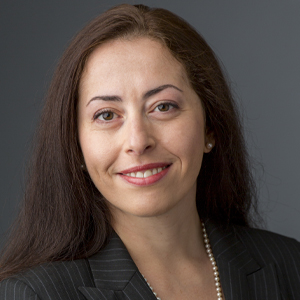
Marina K. Holz is the dean of the Graduate School of Biomedical Sciences and a professor of cell biology and anatomy at New York Medical College. Her lab studies mechanisms of hormone and growth factor signaling in breast cancer and lymphangioleiomyomatosis, a rare lung disease.
Holz is a member of the ASBMB Women in Biochemistry and Molecular Biology Committee and served as a mentor for the Interactive Mentoring Activities for Grantsmanship Enhancement, or IMAGE, program. In addition, she was a session organizer for Discover BMB in 2020 and 2021. As a faculty at the Undergraduate College of Arts and Sciences of Yeshiva University, Holz established an ASBMB Student Chapter. Holz has also authored multiple articles for ASBMB Today.
Sonia C. Flores, a professor and vice chair of diversity and justice at the University of Colorado Anschutz Medical Campus, who nominated Holz wrote: “Dr. Holz is an exemplary member of ASBMB, a respected leader, scientist and educator, and she has worked tirelessly to advocate for students, advance the (diversity, equity and inclusion) mission, create innovative educational programs, and serve the greater scientific community. She is an outstanding human being, always caring for those who need help.”
Mary O. Huff
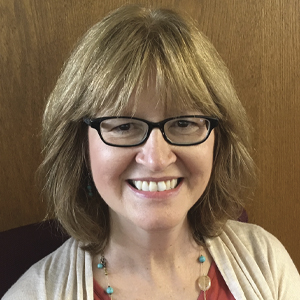
Mary O. Huff is the dean of the Bellarmine College of Arts and Sciences. Her research focuses on the role of estrogen and estrogen-like substances in lung cancer. She also works with collaborators to study the effects of cigarette smoke on lung cells.
Huff has been a member of the ASBMB Student Chapters Steering Committee for nine years. In this role, she chaired the Regional Meeting Awards committee and served on the ASBMB Honors Society, Outreach Grant and Marion B. Sewer Scholarship committees. Huff has also been extensively involved in the Undergraduate Poster Competition, having served as a judge and head judge for many years. In addition, she has authored multiple articles for ASBMB Today.
Celeste Peterson, an associate professor of biology at Suffolk University, nominated Huff and wrote: “She has integrity and high ethical values. Her exceptional and sustained service to ASBMB and her leadership skills in higher education make her an inspiring and deserving candidate.”
Peter J. Kennelly
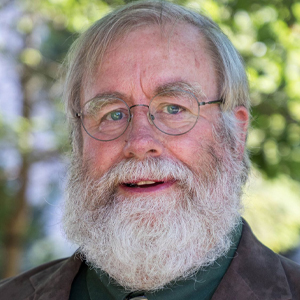
Peter J. Kennelly is a professor of biochemistry at the Virginia Polytechnic Institute and State University. His lab uses archaea to dissect the development and evolution of protein phosphorylation and dephosphorylation.
Kennelly has been a member of the ASBMB since 1986. He served on both the Education and Professional Development Committee and Membership Committee for many years, and he chaired each. He also has been a member of the Journal of Biological Chemistry’s editorial board. Kennelly won the 2024 William C. Rose Award for Exemplary Contributions to Education, and he contributed to the Inclusive Community for the Assessment of Biochemistry and Molecular Learning. In addition, he contributed to the development of programs that are now pillars of the ASBMB education portfolio — the accreditation program and the ASBMB exam. He has authored multiple articles for ASBMB Today.
S. Gaylen Bradley, the dean of basic health sciences at Virginia Commonwealth University, who nominated Kennelly wrote: “Peter has invested an impressive and significant portion of his personal and professional career in service to the ASBMB.… Impressively, most of his service has been while he was Department Head at Virginia Tech. It takes a unique and devoted person to dedicate so much time while facing the intense demands of being the Department Head of a large and vibrant department.”
Bettie Sue Masters
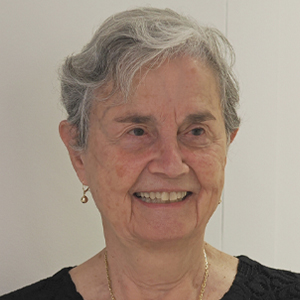
Bettie Sue Masters is an adjunct professor of biochemistry at the Duke University Medical Center. She is best known for her research on the structure–function relationships of the nitric oxide synthase and characterization of cytochrome P450 reductase.
Masters served as president of the ASBMB from 2002 to 2004 and is a past member of the ASBMB Membership Committee. In addition, she has served on the Journal of Biological Chemistry editorial board, as well as the ASBMB Publications Committee and chaired the Public Affairs Advisory Committee following her tenure as president of the society. She was the 1992 recipient of the Federation of American Societies for Experimental Biology Excellence in Science Award, is an elected member of the National Academy of Medicine and a fellow of the American Association for the Advancement of Science.
Fred Guengerich, a professor of biochemistry at Vanderbilt University and a 2021 ASBMB fellow, nominated Masters and wrote: “In my opinion, there is no one else more qualified to be an ASBMB Fellow, just on the basis of service to our society. Adding Bettie Sue’s accomplishments in research, teaching/training, and other service, seals the deal, so to speak. Anyone who has done what she has in her career is truly worthy of being an ASBMB Fellow.”
Richard C. Page
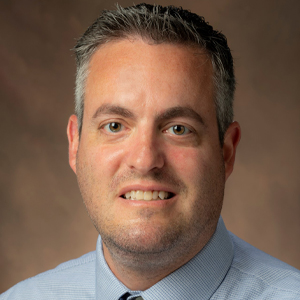
Richard C. Page is a professor of chemistry and biochemistry and the associate vice president for research and innovation at Miami University. His lab studies the structural and biophysical basis of protein quality control and antibiotic resistance.
Page served on the Public Affairs Advisory Committee for eight years. In addition, he has mentored trainees through the Interactive Mentoring Activities for Grantsmanship Enhancement, or IMAGE program. At Miami U., he advises the ASBMB Student Chapter and he has judged the Undergraduate Poster Competition. In addition, Page has authored multiple articles for ASBMB Today.
Ann West, a professor of chemistry and biochemistry at the University of Oklahoma, nominated Page and wrote: “Rick has a distinguished record of service as a faculty member and administrator at Miami U. and, I can say first-hand, as an exceptional leader of the Public Affairs Advisory Committee (PAAC) for 8 years.”
Jennifer Roecklein–Canfield

Jennifer Roecklein–Canfield is a professor of chemistry and physics at Simmons University. Her lab focuses on a systems approach to studying the mechanisms of viral-host interactions and the use of Synthetic Biology principles to create novel DNA devices used to introduce new functions into cells. In addition, Roecklein–Canfield has focused much of her career on providing opportunities for girls and women to excel in science. She has mentored numerous undergraduate and early career scientists.
She is a past member of the Women in Biochemistry and Molecular Biology Committee and has made seminal contributions to the ASBMB accreditation program and exam, including establishing core concept areas and exam questions. Roecklein–Canfield is a member of the Massachusetts Governor’s STEM Advisory Council, which works to expand access to high-quality STEM education for students across the state.
Victoria Del Gaizo Moore, a professor of chemistry at Elon University, and Michael Wolyniak, a professor of biology at Hampden-Sydney College, jointly nominated Roecklein–Canfield. In their nomination letter, they wrote: “Dr. Canfield’s career can only be described as one of selfless dedication to the betterment of those around her with a special emphasis on providing opportunities for girls and women to excel in STEM fields. She has never shied away from challenges to build scientific opportunities at local, regional, and national levels that provide improved access to opportunities in STEM fields to all students regardless of background.”
Christopher E. Rohlman

Christopher E. Rohlman is a professor of chemistry and biochemistry at Albion College. His lab focuses on RNA structure and function, with a focus on the role of transcription, aptamers and ribozymes in health and disease.
Rohlman has been heavily involved in undergraduate education at Albion and through the ASBMB. He has been involved in the Undergraduate Poster Competition since 1997 and served as an organizer, judge and lead judge. In addition, he is a past member of the ASBMB Education and Professional Development Committee.
Craig Streu, a professor of biochemistry at Albion, who nominated Rohlman wrote: “I have personally witnessed his strength as a mentor and his deep commitment to ASBMB’s educational programming. I believe, and others have confirmed, that it is possible to trace the success that ASBMB has had in undergraduate education directly to a number of his foundational contributions. Just as importantly, it is possible to trace the success of a generation of biochemists to his instruction and mentorship.”
Walter A. Shaw
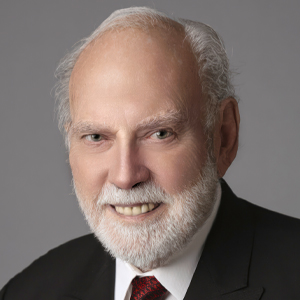
Walter A. Shaw founded Avanti Polar Lipids, Inc, which supplies academic and industry professionals with lipid-based products and tools. He served as its president and CEO until 2020 when Croda, Inc purchased the company. Through Avanti, he has developed important research tools as well as lipids for U.S. Food and Drug Administration-approved pharmaceuticals.
He is the namesake and sponsor of the ASBMB’s Walter A. Shaw Young Investigator Award in Lipid Research, which recognizes outstanding research contributions in the area of lipids by a young investigator who is an assistant professor or equivalent with no more than 10 years of experience. Shaw has sponsored this award for more than 10 years. HE has also sponsored many other awards such as the ASBMB Avanti Award in Lipids and the Avanti-Biophysical Society Award, established in 1997 with the Biophysical Society.
Alfred Merrill, a professor of biological sciences at the Georgia Institute of Technology, nominated Shaw and wrote: “Walt (and Avanti) have always been more than just a company that sells lipids through their assistance at meetings as well as provision of helpful tips on the company website.”
John T. Tansey

John T. Tansey is a professor of chemistry and the director of the biochemistry and molecular biology program at Otterbein University in Ohio. The Tansey laboratory examines the role the PAT proteins play in lipid storage and disease. This work is almost exclusively conducted by undergraduates.
Tansey is the faculty adviser of the ASBMB Student Chapter at Otterbein University, which won the 2023 Outstanding Chapter Award. They also won the award in 2012, 2014 and 2018. In addition, he has served on the ASBMB Education and Professional Development Committee. In 2004, he won the Best New Teacher award, and, in 2012, he won Teacher of the Year award at Otterbein.
Peter Kennelly, also a 2024 ASBMB Fellow, nominated Tansey and wrote: “He stands out as an influential leader of both his university community and of the ASBMB's scientist-educator community. The impact of John Tansey's multiple and sustained contributions as a thought leader and advocate both at Otterbein and beyond clearly and vividly embody the core values of the ASBMB Fellows program.”
Brian W. Wattenberg
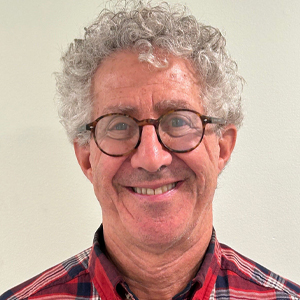
Brian “Binks” W. Wattenberg is a professor of biochemistry and molecular biology at Virginia Commonwealth University. His lab studies the biochemistry and trafficking of lipids, such as sphingolipids.
Wattenberg is a founding member and the membership director of the ASBMB Lipid Research Division. Through this role, he campaigned to recruit scientists interested in lipids to the society. In addition, he is a member of the ASBMB Today editorial advisory board and has authored articles for the magazine. Wattenberg was a member of the Journal of Biological Chemistry editorial board from 2006 to 2020. At VCU, he won the Outstanding Teacher Award in the department of biochemistry and molecular biology in 2018 and 2019.
Together, Daniel Raben, a professor of biological chemistry at Johns Hopkins University; Yusuf Hannun, the director of the Stony Brook Cancer Center; Vytas Bankaitis, a professor and chair of cell biology and genetics at Texas A&M University; and Teresa Dunn, a professor and chair of biochemistry and molecular biology at the Uniformed Services University of the Health Sciences, nominated Wattenberg. In their nomination letter, they wrote: “In addition to his stellar record of scientific achievement it is important to note his major impact on the ASBMB and the lipid research community at large. Scientifically, in addition to his seminal contributions to our understanding of vesicular trafficking, Dr. Wattenberg is an internationally recognized leader in lipid biochemistry, sphingolipid biochemistry in particular.”
Enjoy reading ASBMB Today?
Become a member to receive the print edition monthly and the digital edition weekly.
Learn moreGet the latest from ASBMB Today
Enter your email address, and we’ll send you a weekly email with recent articles, interviews and more.
Latest in People
People highlights or most popular articles

Notebook scribbles to synthesis pathways
The discipline Kendrick Smith learned as a musician helps him stay focused at the bench.
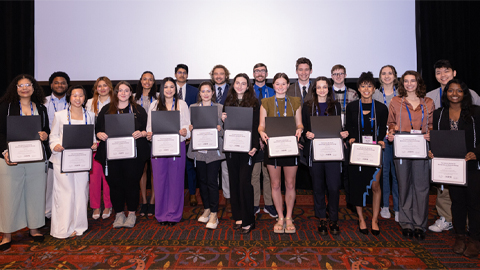
ASBMB inducts new honor society members
Chi Omega Lambda, which recognizes exceptional juniors and seniors pursuing degrees in the molecular life sciences, has 31 inductees in 2024.
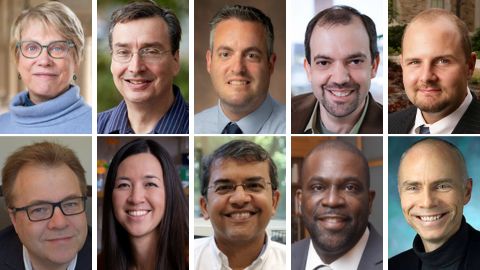
2024 voter guide
Learn about the candidates running for ASBMB Council, Nominating Committee, Publications Committee and treasurer.
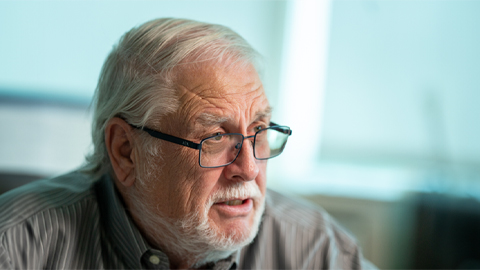
Charles O. Rock (1949 – 2023)
Colleagues and trainees remember a world expert in membrane lipid homeostasis.
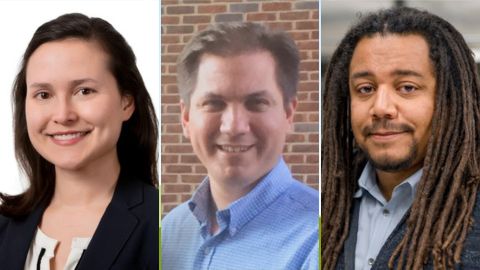
Honors for Clemons, Hatzios and Wiemer
Awards, honors, milestones and more. Find out what's happening in the lives of ASBMB members.
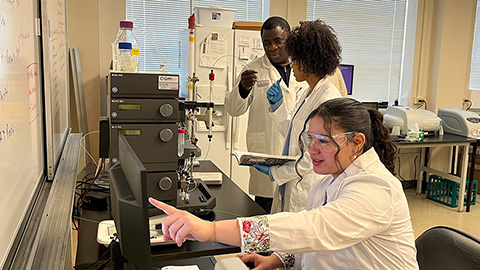
Touching the future from the bench
Scholar, scientist, teacher and mentor Odutayo Odunuga discusses the important roles of the institutional PI, his journey and his research.

